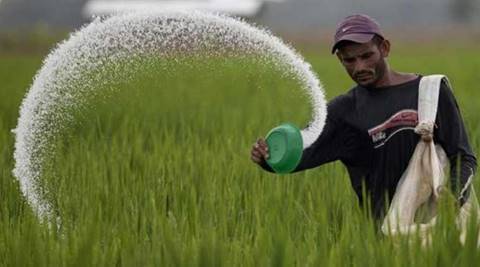Opinion Nutrient paradox
NDA government should leverage softening of global prices to decontrol fertilisers, as it has done for petro-products.

Sales of fertilisers have dipped, despite Krishi Bhawan’s claim of a record kharif harvest this year on the back of a decent monsoon and also a decline in retail prices of decontrolled phosphatic, potassic and other complex nutrients. This could be a reflection of two things. The first is that the agriculture ministry’s production estimates are themselves exaggerated. That possibility is, however, discounted by the fact that kharif acreages have gone up significantly over last year; the fact of a production increase is undeniable, even if the extent of it as per the official numbers can be questioned. It leaves a second possibility — of farmers actually applying less fertiliser. But even that may not be as straightforward. If farmers and dealers had stocks from the previous year’s purchases — which couldn’t get used because of drought — that pipeline material may well have got consumed this time. In other words, even if sales of fertiliser firms have fallen, farmers’ consumption needn’t have. As of now, we don’t have data for the latter.
But even assuming farmers have, indeed, cut back on consumption — for lack of money or access to credit owing to consecutive drought years — this can only be a temporary phenomenon. Sooner rather than later, they are bound to purchase more nutrients without which sustaining, leave alone improving, crop yields isn’t possible. From a policy perspective, what matters is how to boost fertiliser usage efficiency by farmers that is both in their own interest and long-term soil health. The last one year has seen a crash in international prices of fertilisers. Much of it has to do with China turning from an importer to an exporter of urea and di-ammonium phosphate. China is, in fact, India’s biggest supplier of these two key nutrients today. That, in combination with new capacities coming up in Saudi Arabia, Africa and North America, has made the global fertiliser market into one for buyers.
The government should seize this moment to decontrol fertilisers as it has already done in petro-products. Just as for LPG cylinders, let there be a fixed nutrient-based subsidy on every fertiliser, including urea, which is transferred directly to farmers’ bank accounts after the purchase is made at market prices. Farmers will, then, buy the fertiliser that isn’t the cheapest — subsidy should be only incidental to making such choices — but the best suited for their soils or crops. And let companies compete in offering such customised products.




